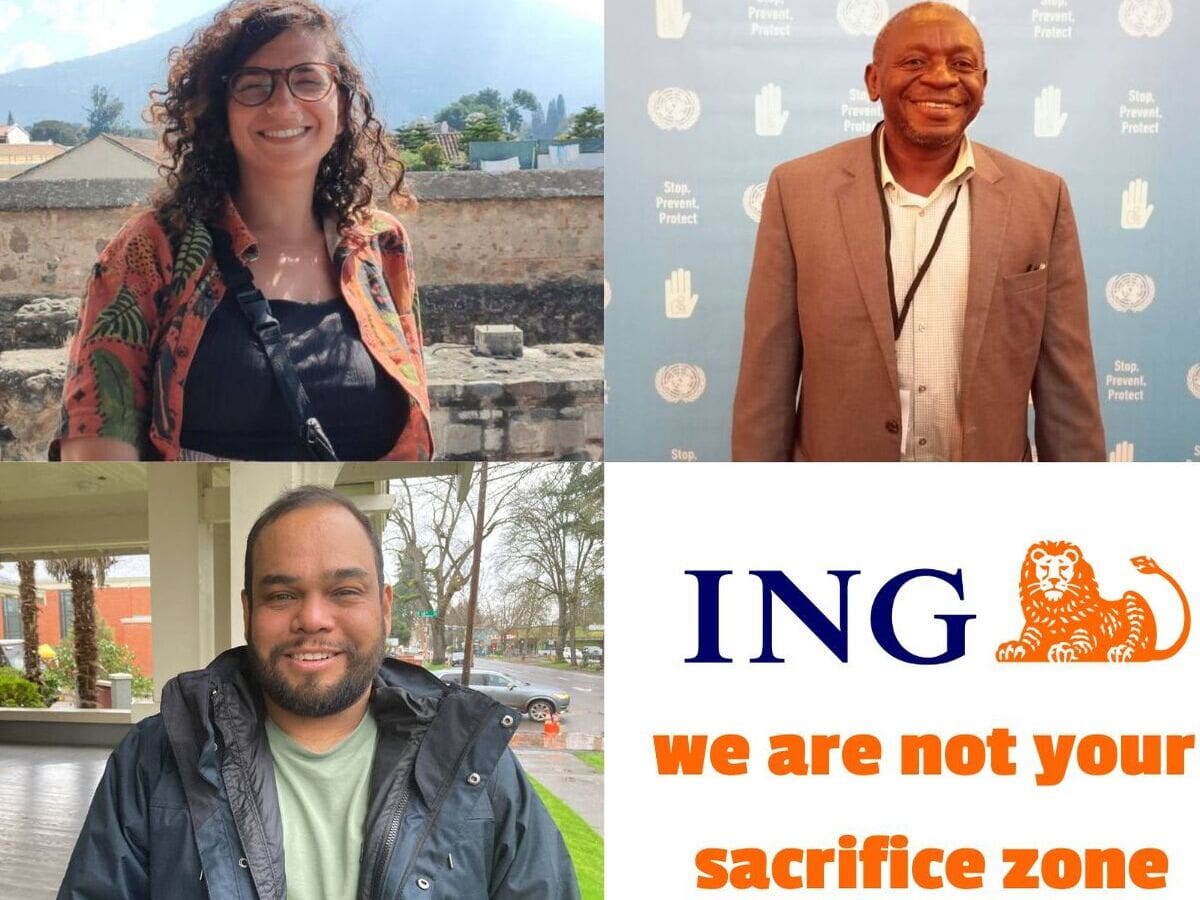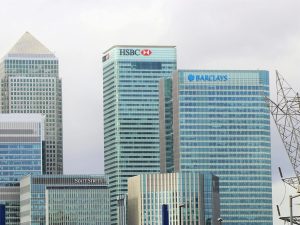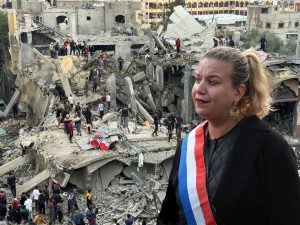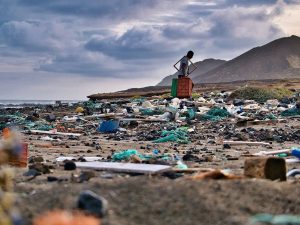Activists from the world are uniting against Dutch banking giant ING’s environmental racism. Specifically, at the company’s upcoming AGM they plan to call out ING’s financing of a big polluter and climate-wrecking industries harming marginalised communities throughout the Global North and South.
On Monday 22 April community defenders from the US, Mexico, Brazil, Liberia, and the Czech Republic will attend ING’s AGM to call out the company’s financing for destructive big polluters.
Fossil fuel finance accountability non-profit BankTrack and Netherlands climate campaign group Fossielvrij have facilitated their travel to Amsterdam, to take on the banking giant at this key meeting.
ING financed ‘sacrifice zones’
Significantly, the coalition of community representatives will draw attention to ING’s financing for liquified natural gas (LNG) and steel projects decimating local communities across the globe.
In the US, ING has financed seven LNG terminals in the Gulf South, Texas, with more in the pipeline. Notably, data from the IJGlobal database shows that just last year in 2023, ING provided at least US $1.4bn in finance to these LNG terminals and companies planning further expansion.
There, the ING financed facilities are adding to the already toxic levels of air and water pollution. Of course, this is because companies have situated this infrastructure in the Texas petrochemical corridor.
Two community defenders fighting projects in their towns of Port Arthur and Freeport will take ING to task for the impacts these are having on the health of residents. Predictably, the LNG projects are disproportionately harming Black and Brown communities in these locations.
Ostensibly then, these are ‘sacrifice zones’, which as the Guardian has previously articulated, refer to:
parts of the United States where rates of cancer caused by air pollution exceed the US government’s own limit of “acceptable risk.”
Crucially, Black and Brown communities make up a disproportionate percentage of the people in these ‘sacrifice zones’. In other words, they are overrepresented in places sitting on the frontlines of the toxic impact from these polluting facilities.
Calling out environmental racism
Given this, founder and CEO of the Port Arthur Community Action Network John Beard is attending the AGM in protest. At ING’s meeting in 2023, Beard previously called the company out on its environmental racism. However, the AGM shut down his question, since it did not concern company profits.
Meanwhile, director of Better Brazoria Melanie Oldham will also be testifying to the meeting on the environmental and health impacts of these LNG terminals in her city of Freeport, Texas.
She said that:
LNG projects, including Freeport LNG near my town, are literally killing us and our Earth. Many frontline community leaders from environmental injustice “sacrificed” Gulf Coast areas, including me, have already travelled to the Netherlands to tell ING our stories.
We demanded that ING stop financing LNG. However, ING management has refused to take any action so far. ING should take the lead and stop financing risky, proven dangerous, health damaging, methane spewing LNG facilities present and proposed on the US Gulf Coast.
They are adding their names to the representatives of these communities who have been challenging ING’s finance for the past year.
In October 2023, four residents from the Gulf of Mexico held a demonstration in front of ING’s offices in Rotterdam, calling on the bank to end finance for LNG expansion.
Steel industry decimating Global South communities
Of course, ING is also financing environmentally destructive industries in the Global South. Specifically, it is funding a number of steel companies across Brazil, Mexico, and Liberia.
For instance, ING finances Ternium’s steel plant in Rio de Janeiro in Brazil. The facility is heavily polluting, and disproportionately impacting the health and livelihoods of Black and Brown communities living nearby.
Meanwhile, ING-funded ArcelorMittal owns the ArcelorMittal Liberia iron ore mine in Nimba county, Liberia. Naturally, the company is attempting to expand its production. Of course, this is despite decades of allegations of corruption, broken promises for social development contributions, and massive biodiversity loss that threatens the livelihoods of local communities living near the mine.
Similarly, in Jalisco, Mexico, Ternium and ArcelorMittal jointly operate the Peña Colorada iron ore mine. There, three human rights defenders opposing the mine were murdered in 2023.
Demanding “social, environmental and climate justice now”
As such, three members of the Fair Steel Coalition from these communities will attend ING’s AGM. These include community organiser at PACs Brazil Ana Luisa Queiroz, co-founder of Green Advocates Liberia John Nimly Brownell, and Eduardo Mosqueda, a human rights lawyer and founder of Tskini, from Mexico.
Brownell said:
I’m attending ING’s AGM because I want ArcelorMittal Liberia to address its social and environmental impacts, from customary land grabs to the loss of water and wildlife through pollution. I want ArcelorMittal to value the environment, respect human rights and provide sustainable livelihoods for the communities affected by its mines. The areas damaged by AML’s operations can never be restored to their original natural beauty.
Adding to this, Mosqueda said that:
The steel companies that ING finances have torn down hundreds of hectares of forests, covered our communities in dust, and dried up our water supplies. Meanwhile the Indigenous defenders who oppose this model have disappeared or are murdered. We are in Amsterdam now to tell ING that they are just as responsible for their clients’ actions, and that we, the people of the global south, demand social, environmental and climate justice now.
ING is the third largest European financier of steel. Specifically, it has funded the industry to the tune of US $6bn between 2016 and June 2023.
Crucially, ArcelorMittal is ING’s largest steel client. According to financial research by Reclaim Finance, since 2016 ING has provided US $3.4bn to ArcelorMittal through loans, bonds and shares. In addition, ING also provided US $100m of $1.5bn loan to Ternium in 2017. In particular, this was for the company to acquire its steel mill in Sao Paulo and set up Ternium Brazil.
And as well as causing these huge environmental and health harms for people and biodiversity, the industry is responsible for 11% of global carbon emissions due to its reliance on coal.
Cut ties with community and climate-wrecking projects
So, on Monday, these community members from across the world will take ING to task for its rampant environmental racism. Inside the AGM, they will call out the banking giant for underpinning these ecocidal and human rights violating projects.
That evening, they will share their stories about the impact of ING’s finance on people, workers and the climate. They will be highlighting these experiences at a storytelling event in Pakhuis de Zwijger in Amsterdam.
In tandem with this, Dutch environmental organisation Milieudefensie (Friends of the Earth Netherlands) has prepared volunteers to enter the AGM. It will do so with the clear demand that ING:
Adhere to the Paris climate agreement, so at least 48% fewer emissions in absolute terms (scope 1, 2 and 3) compared to 2019 by 2030, or we’ll see you in court
In January, it launched legal action against ING over its inadequate climate policy.
Together, community defenders will shed light on ING’s financing of ecocidal, racist, and climate-wrecking projects the world over. Vitally, they hope to compel the company to cut ties with these projects. Only then, can it finally bring the harm it is causing to their communities to an end.
Featured image via BankTrack




